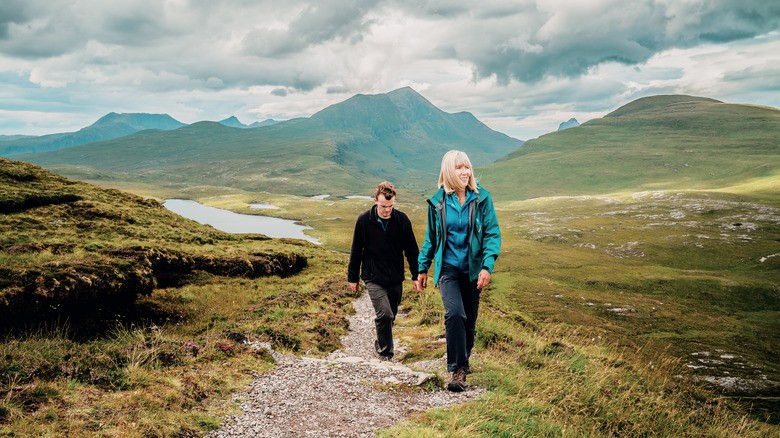Scotland is portrayed in so many movies and TV shows as an idyllic and picturesque destination for those looking for a mix of history and adventure activities. “Braveheart,” “The Outlander,” and “Skyfall” all depict the Scottish countryside and the Scottish Highlands so majestically, they’re just begging us to strap on the hiking boots. Plus, some serious hunks are Scots: Ewan McGregor, Gerrard Butler, James McAvoy, Sean Connery, even Gordon Ramsay! Honestly, we would fly straight to the Highlands just in the hopes of bumping into one of these men on the trails!
However, some are raising the red flag on a serious set back you might encounter while hiking the Highlands, and it’s ickier than you might have expected. Picture it: you show up in summer, ready to traverse the rolling hills and sweeping valleys, hoping to bump into James Bond, and instead you get a face full of midges. Do you mean to tell us that “The Outlander” lied to us? One TikToker @hikingwithmark seems to think so. In his viral video, he reveals that the expectation vs. reality of the Scottish Highlands during the summer months is quite stark, because the midges are so ravenous, and number in *does the math* the bajillions, that they could very easily turn your romantic summer hike into a nightmare.
The midges population peaks in summer
@hikingwithmark
I can’t keep sharing one side of Scotlands summers and not the other side… midges are no joke. What a day this was lads @Kieran Barton @Michael Haddow 😬😅 #traveltiktok #fyp #scotland #hiking #instagramvsreality #munrobagging
♬ original sound – Tram Le at IG @tramnble
Tiktoker @hikingwithmark shared to his over 32,000 followers a video that depicts just how relentless the Scottish midges are. At first, you might be forgiven for thinking the little insects are snowflakes, but pretty quickly you realize those voracious little monsters are trying to get into his mouth so much, he has to wear insect netting OVER HIS FACE! The video has been liked more than 38,000 times, so he’s clearly on to something.
If you’ve never heard of them, midges are tiny black insects that appear normally in marshy areas, per Visit Inverness Loch Ness, and Mountaineering Scotland reports that “40,000 can land on an unprotected arm in one hour with a potential 11 bites per second.” Yikes! Smaller than mosquitoes, the midges’ bites are typically more annoying than painful, however skin reactions depend on individual sensitivity. If you tend to have severe reactions to insect bites, then you may experience redness, swelling, discomfort, and itching. Visit Inverness Loch Ness recommends checking the Midge Forecast if you plan on visiting Scotland in the summer months, basically mid-May to September, because that’s when the midges population is at its peak. If you do decide to go in the summer months, Mountaineering Scotland says that @hikingwithmark’s method of using a facial insect net is the right course of action to keep the bugs away. They also recommend full-body nets and if you’re camping, find ones that go over your tent, unless you want them in your food and to attack you in your sleep!

